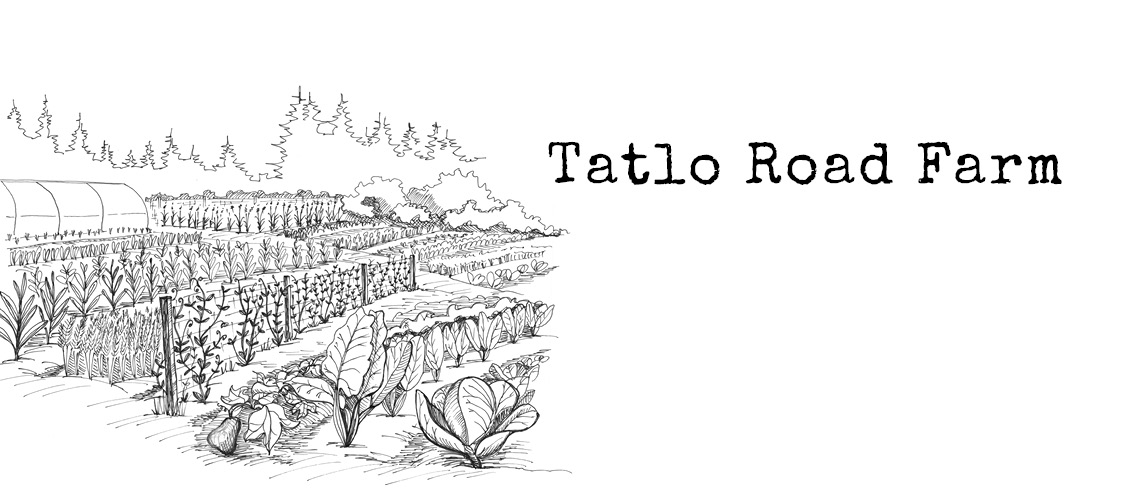The cost (and benefits!) of joining a CSA
A common refrain about local, organic food is that it's expensive. I don't believe this to be true for two reasons. First, as an organic vegetable farmer selling most of my produce through local farmer's markets, I pay extremely close attention to what vegetables cost in the grocery store (probably much closer attention than the average consumer). It's my conclusion that our prices are often on par with the organic produce aisle, and sometimes even lower, while our freshness and quality is always far superior to that of grocery store vegetables. Second, our prices reflect our true costs of producing this food. We set our prices in a way that allows us to do the hard work of growing food and stay in business over the long term. When we see cheap food coming from Mexico, China, Argentina, and so on, it's because someone else (or some place else) is paying the price for us in form of low wages, human rights abuses, and social and environmental degradation... All so the grocery stores here can sell green onions for $0.99/bunch.
For conscientious consumers (or folks who simply value the taste and quality of good, fresh food), one solution that has arisen over the past couple decades is the "CSA". This acronym stands for "Community Supported Agriculture" and has come to represent a range of pre-paid subscription programs for farm produce, for everything from fruit and vegetables, to meat, grains, cheese, eggs, and even fish. These programs might vary in some details, but they all typically serve customers who pay in advance for an agreed upon amount of farm product to be distributed over the course of the season. While CSA programs are a service provided by the farmer or fisher, sometimes we forget that CSA's are also a partnership.
Community members participate by supporting their local farmer with a commitment at the start of the year, paying for their produce in advance of the season. Most farmers, especially vegetable growers, incur the bulk of their expenses early in the year when there is very little farm revenue coming in and so CSA programs originated to help farmers with this challenge. The early season income from CSA customers is incredibly helpful to the farmers at a time when they need it most.
Later in the spring and throughout the harvest season, the farmer then reciprocates by providing fresh, local produce to the customers each week. Most farms go further though, many include a newsletter with farm updates, recipes, and cooking tips, as well as hosting on-farm events like tours and potlucks. In this way CSA programs offer supporters of local agriculture an opportunity to really connect with a local farm.
CSA's are also a great way to learn about seasonal eating, as customers discover new foods they might have overlooked (and realize they love!), try new recipes, and learn new ways to prepare some of our “every day” vegetables. Another benefit is that farmers usually prioritize their CSA customers. On our farm we offer a CSA as well as going to farmer’s markets, but if we only have enough of favourite items like peas or strawberries we put these in our CSA box first, only sending the extra (if any) to market. Joining a CSA program is a great way for customers to ensure access to the best local produce all season long.
Some customers might not be able to afford making one lump sum payment at the start of the season though, so talk to your farmer as some will offer payment plans. While it’s helpful to receive the full payment up front, farmers don’t want to be exclusive; they want everyone to be able to enjoy their produce. Another way to afford joining a CSA is to save your change! At the start of this year one of our CSA customers began saving all her pocket change each week. Over the course the winter and spring she had saved up enough to pay for the CSA in full prior to the program starting. She paid us in neatly rolled toonies, loonies, quarters, and dimes (which come in handy for making change at the farmer's market!). She said it felt like she wasn't paying anything at all, as normally small change goes unnoticed. You see, local food is not necessarily more expensive and it definitely doesn't have to feel expensive!
One of our CSA customers paid for her Harvest Box, as we call it, by saving her pocket change. Starting in January she set aside all her coins and by May she had paid in full for the season's box... And we didn't mind receiving the payment in rolled coin at all- we always need change at the farmer's market.

